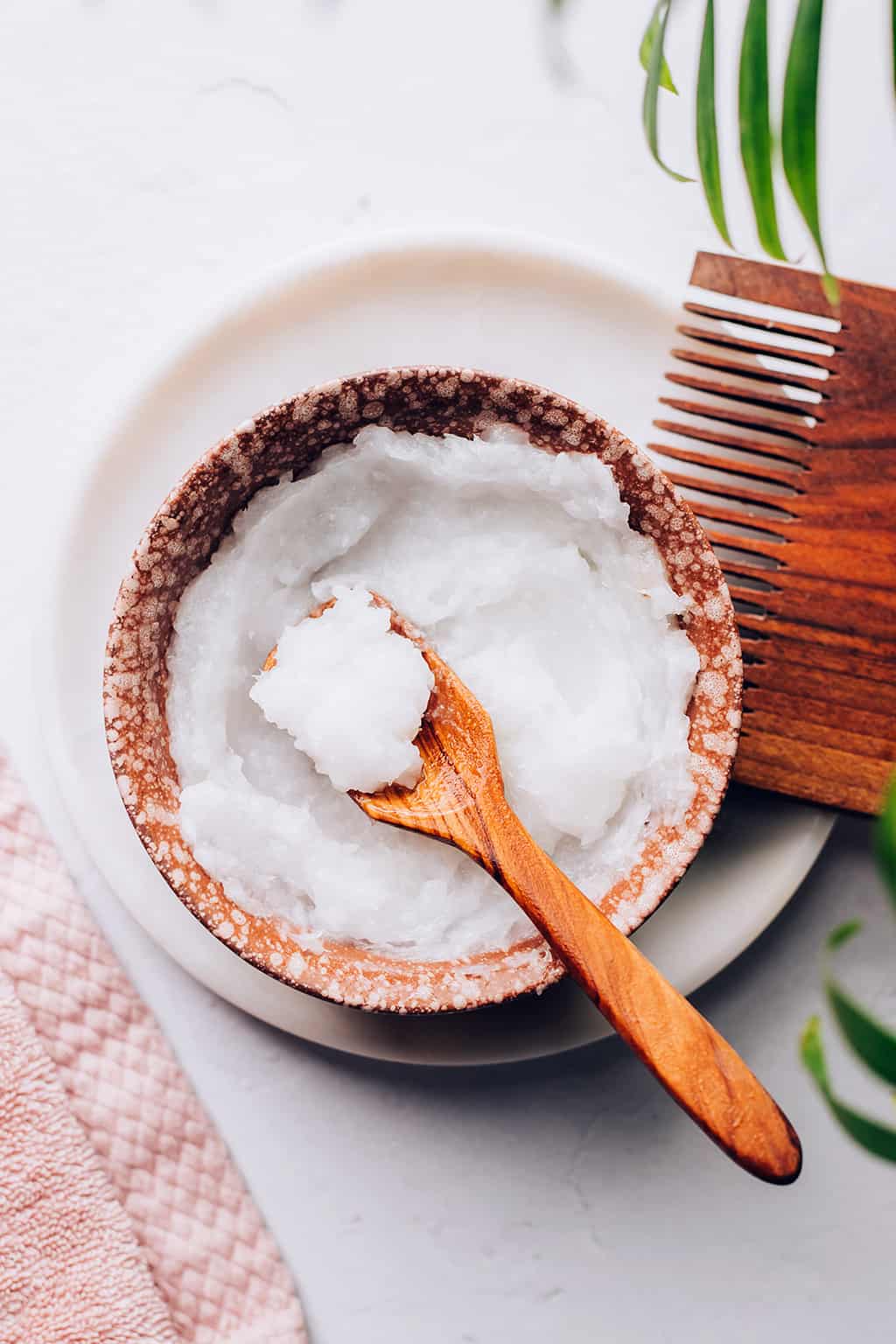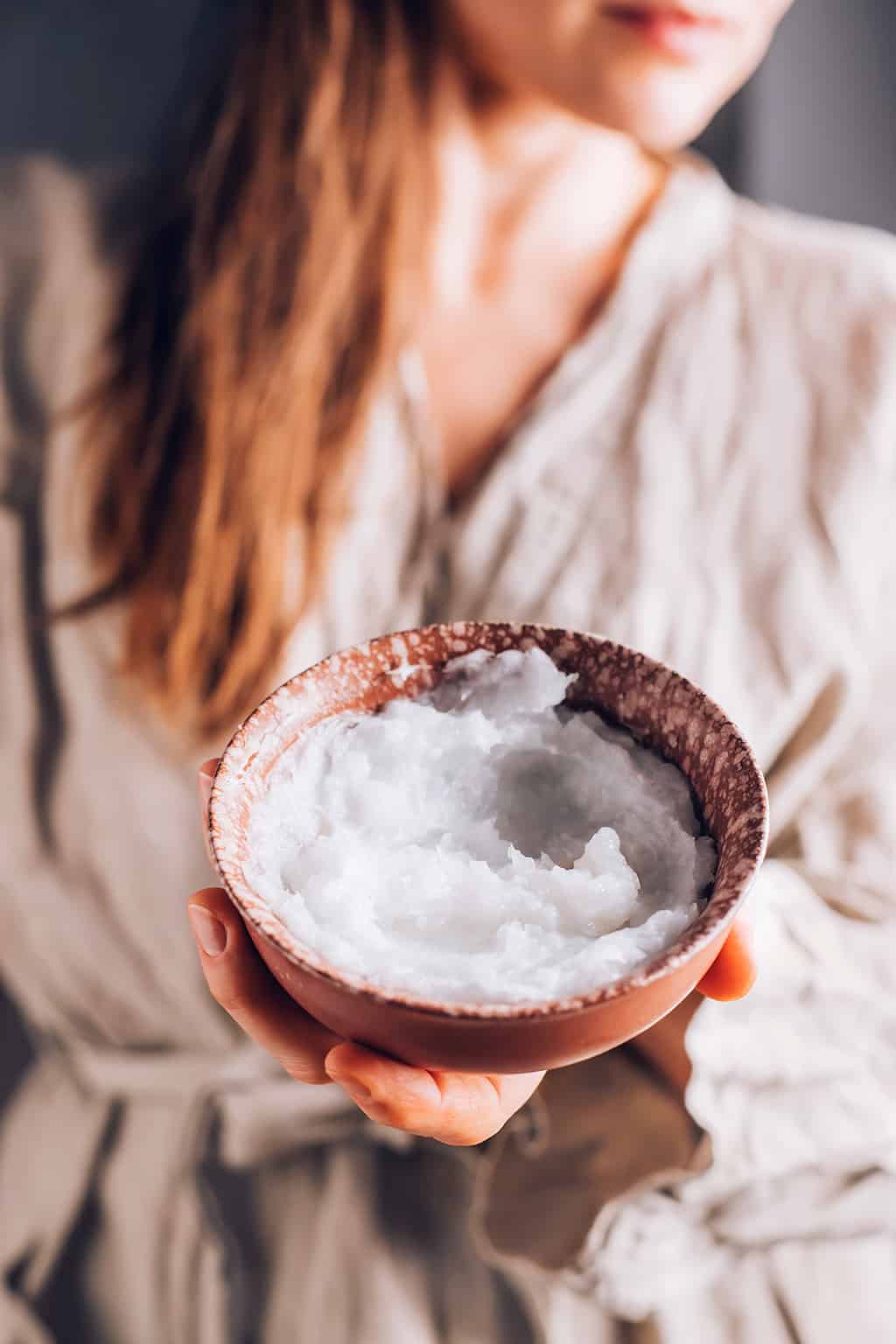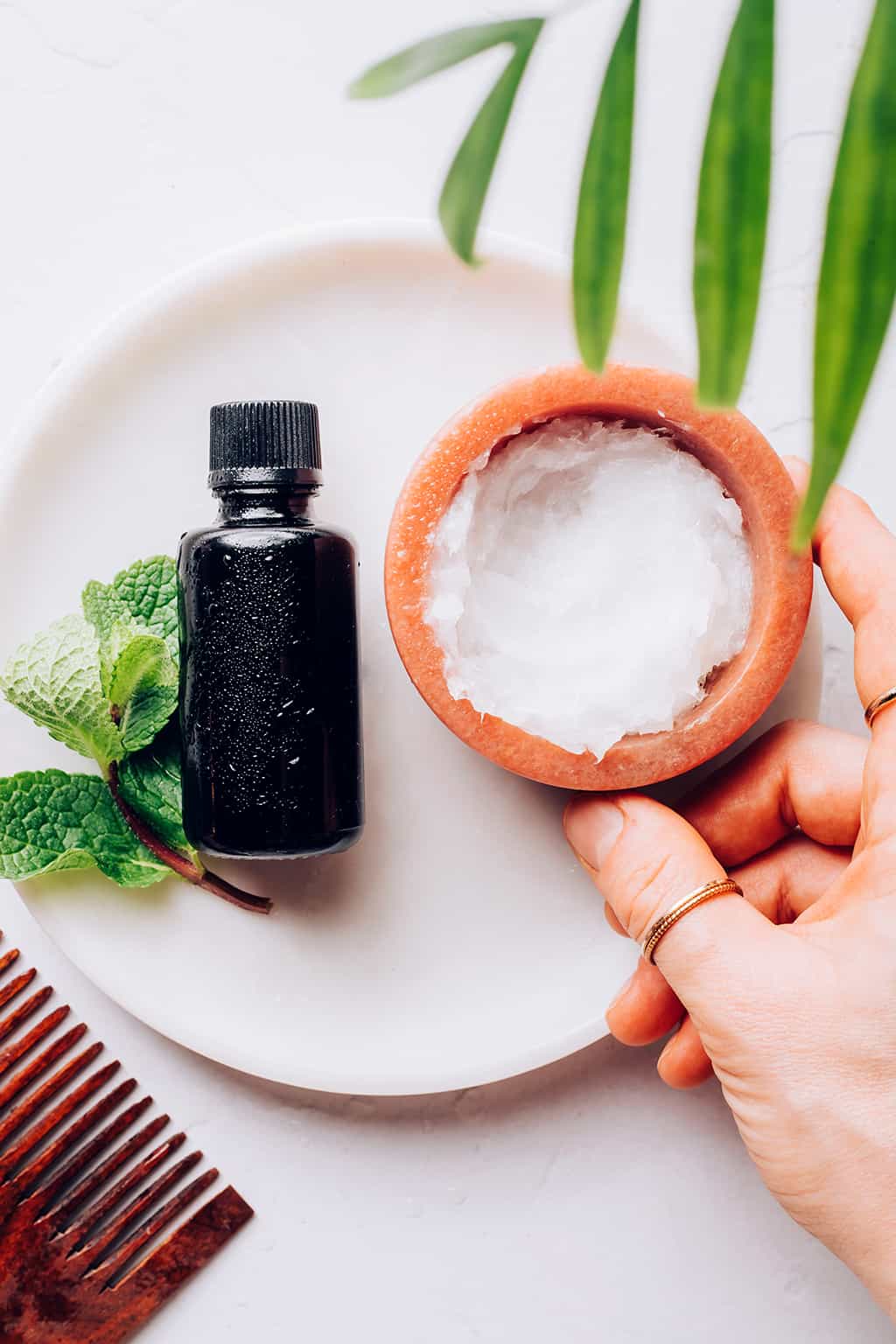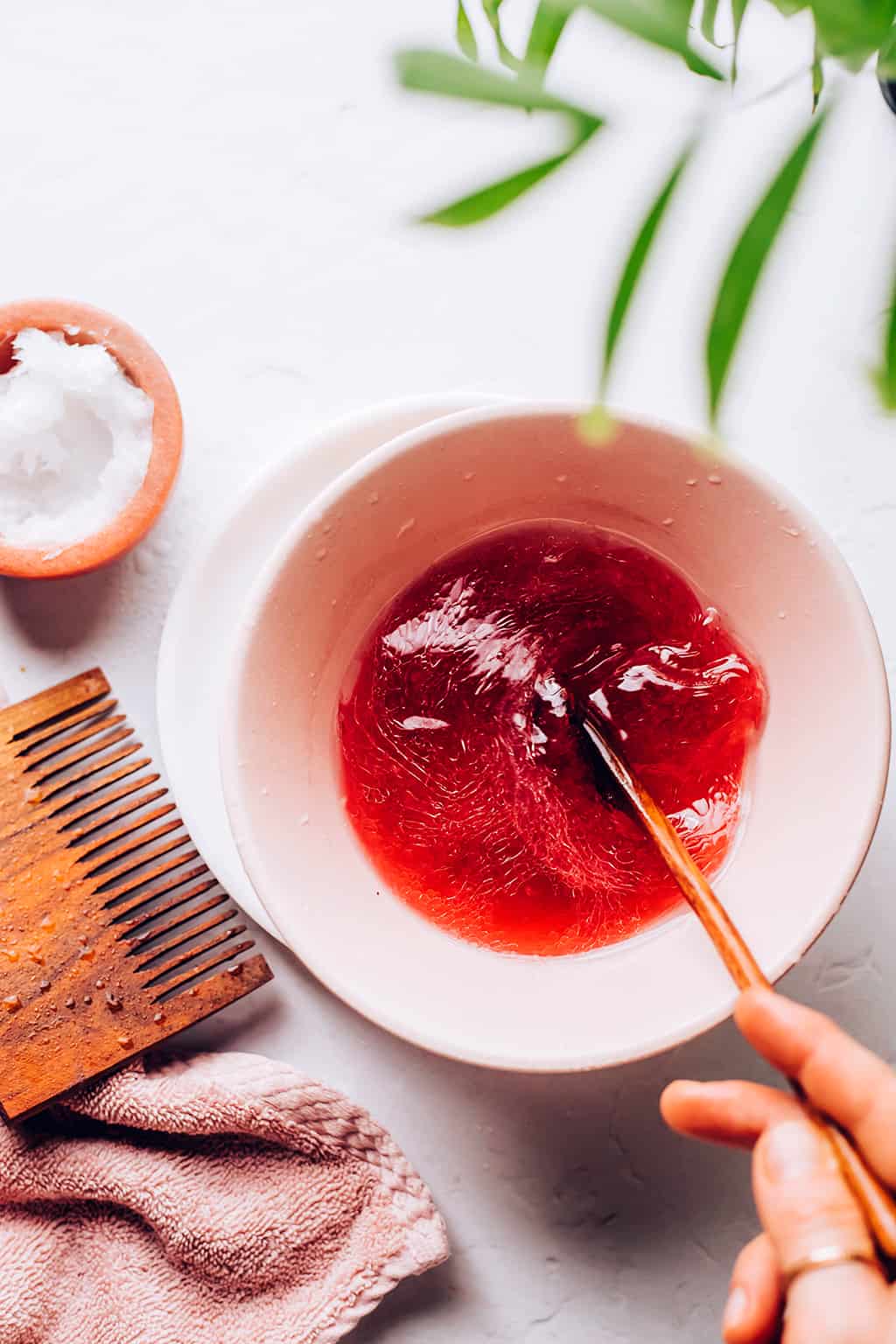Table of Contents
[ad_1]
My love for coconut oil runs deep. You can use this pantry staple for almost anything, I swear. It kicks butt for everything from soothing sunburns and strengthening teeth to relieving eczema—seriously, is there anything the stuff can’t do? But hair is one of the places where coconut oil both literally and figuratively shines.
Using coconut oil for hair softens strands, adds a silky luster, and helps repair dry locks without leaving them limp and greasy. Heck, it even gets rid of embarrassing dandruff and encourages hair to grow faster. That’s a lot of bang for your hair care buck!
Meet the experts
Andrew Fitzsimons, a celebrity hairstylist
Penny James, New York City trichologist and hairstylist
Annagjid “Kee” Taylor, celebrity hairstylist and natural hair YouTuber
Medically reviewed by Dr. Rina Mary Allawh, a board-certified dermatologist

Benefits of Coconut Oil for Hair
1. Strengthens hair and reduces breakage
Since it’s a rich source of fatty acids and proteins [source] and has an affinity for hair proteins [source], it zones right in to help strengthen hair and prevent further damage. Research has shown that regular use of coconut oil on hair reduces breakage [source].
2. Moisturizes hair
Studies have demonstrated that coconut oil is excellent at penetrating the hair shaft to deliver its moisturizing effects [source], so it’s perfect for revitalizing dry strands.
3. Antibacterial and antifungal
Coconut oil is naturally antibacterial and antifungal, so it can be used to help combat dandruff while also nourishing dry skin found on the scalp, explains Andrew Fitzsimons, a celebrity hairstylist whose client list includes JLO, Meghan Fox, and Kim Kardashian.
“Coconut oil also acts as a soothing agent that can help reduce scalp irritation due to its high fat content,” he explains. Plus, when applied to the scalp, it penetrates deep into the epidermis, adding moisture and soothing inflammation in an itchy, irritated scalp.
4. Hair-strengthening superfood
Coconut oil may offer the most benefit for hair when consumed, as opposed to being applied topically. It contains myriad fatty acids, proteins, and antioxidants that provide a whole host of health benefits.
When eaten regularly, it’s said to support everything from healthy hormone production to metabolism. And since hair is a reflection of our internal health, incorporating more coconut oil into your diet—along with other foods that boost hair health—can improve hair strength and appearance from the inside out.
5. Sun protection
Believe it or not, coconut oil has an SPF of around 8, which means it can also help protect your hair and scalp from those harmful UV rays, according to Fitzsimons. “Bonus: It can help protect your hair from chlorine and saltwater damage as well.”

Does Coconut Oil Work on Every Hair Type?
“Coconut oil can work wonders on most hair types, especially those with dry or color-treated hair,” notes Fitzsimons. “I would use caution when it comes to repeated use, specifically for those with coarser hair textures as it can lead to hair stiffness and product build-up,” he explains.
For hair that has been pressed, relaxed, or is very fine, New York City trichologist and hairstylist Penny James recommends applying just a little to start. “The oil will weigh down your hair if too much is used,” she says. “Start with a slight amount, rub into your hands, and apply by massaging small quality into the hair.”
You can use a bit more if your hair is natural, coarse, and thick—a tablespoon should suffice. “Apply on damp hair, massage well into the hair as a pre-wash treatment, or leave it on for an hour before shampooing it out,” says James. “For styling, apply a smaller amount directly to the shaft, not the scalp, to score more shine.”
Can You Use Coconut Oil for Hair Growth?
Unfortunately, the jury is out as to whether or not coconut oil can be helpful in growing new hair. “There have not been enough studies to date to prove this theory,” says James. “Trichologists suggest using coconut oil for the hair shaft due to its fantastic penetrating properties to reduce protein loss.”
If nothing else, coconut oil will undoubtedly aid in making your hair healthier and thicker, which will support its growth. “A 5- to 10-minute treatment mask once or twice a week will be enough to help keep your length,” says celebrity hairstylist and natural hair YouTuber, Annagjid “Kee” Taylor.

How to Use Coconut Oil On Your Hair
Here are my 5 favorite ways to use coconut oil for hair. The best thing about them is how easy it is to add them to your daily routine!
1. Condition hair with coconut oil
I swear by coconut oil for adding much-needed moisture. Any time my hair is feeling dry and needs a pick-me-up, coconut oil is what I turn to.
How to apply it
To use as a deep conditioner, simply take a pea-size amount and rub it between the palms of your hands until it’s nice and liquidy. Then rub your hands through your hair, starting at the roots and moving toward the ends. You don’t need much, just enough to lightly coat your hair.
For extra conditioning action, pop on a shower cap and use a warm blow-dryer to gently heat up your hair. Heat allows the coconut oil to better penetrate the hair, leaving it silky, smooth, and hydrated.
Leave the oil on for an hour (or overnight if you have time), then shampoo and condition like usual. If you only used a small amount of oil, you shouldn’t run into problems washing it out completely. But if you do, add a teaspoon of baking soda to your shampoo and wash a second time.
Variation: Pumpkin coconut mask
Mix 1 tablespoon of pumpkin puree and 2 teaspoons of coconut oil. Massage onto the scalp with your fingers, and rinse after 20 minutes. Repeat twice a week.
2. Smooth flyaways and frizz with coconut oil
Coconut oil is literally the best thing I’ve ever used for calming down those frizzy flyaways! It’s best to start with a little bit of oil at a time to avoid weighing down hair until you get the look you want. You can slowly build up product until it’s perfect, but it’s much harder to take product away when you have too much.
How to apply it
Simply rub a dollop of oil between your palms, then gently swipe ’em over the ends of your hair and rub any leftover oil into split ends. The best time to apply this is when hair is still a tiny bit damp but not too wet. This helps distribute the oil better and makes your hair easier to style.
Variation: Homemade hairspray
Homemade hairspray is one of the more unique ways to use coconut oil for hair. As opposed to most commercial hair sprays, this one helps hydrate strands and naturally strengthens damaged locks.
While you shouldn’t expect to get the firm hold of alcohol-laden hair sprays, you will end up with fewer flyaways and natural shine. It also won’t leave your hair crunchy like traditional hairsprays tend to do! Instead, your hair will look gorgeous and healthy.
3. Soothe and stimulate scalp with coconut oil
Several factors can lead to dandruff (bacteria, eczema, dryness, and even an oily scalp—to name a few), so before applying coconut oil willy-nilly, it’s best to get to know your scalp. If you think eczema, dryness, or bacteria are playing a role, coconut oil can be a great remedy for flakes.
How to apply it
Use your fingertips to apply a tiny bit of oil to your scalp and massage it in. A head massage also boosts circulation in the scalp, which supports healthy hair growth—a win-win!
Let it sink in for 15 minutes, then rinse it off thoroughly. You can follow up with shampoo or simply let your hair dry naturally and apply dry shampoo to soak up the excess oil.
Coconut oil can clog pores and cause sebum build-up, so always do a test run on a small section of hair first. If you notice dandruff getting worse, give the oil a rest.
Variation: Brown sugar scalp scrub
Combine ⅓ cup of brown sugar and 2 tablespoons of liquified coconut oil. Rub onto a damp scalp for 1 minute, then rinse. Use once a week.
Variation: Matcha scalp scrub
Combine 2 teaspoons of matcha powder with 1 tablespoon of coconut oil. Gently massage the mask into your scalp, then rinse and shampoo as usual.
4. Dodge dryness with a pre-shampoo treatment
How different is this from a deep conditioning treatment? Well, the concept is similar, but it takes place in another part of your hair care routine. While a deep conditioning treatment is best applied and left on clean hair, a pre-shampoo treatment can be used on dry, unwashed hair before your regular shampooing routine.
Using coconut oil as a pre-shampoo treatment is a great way to get the benefits of this nourishing oil for your hair without having to leave it in your hair for hours (although, I will say that the longer you leave it in, the better!).
Applying the oil to dry hair is key to getting the most out of a pre-poo treatment. Did you know that hair is most prone to damage when it’s wet? It becomes very stretchy and can snap super easily, which is why you’re not supposed to tie or brush hair when it’s wet. Coconut oil as a pre-poo treatment helps to detangle and prevent oversaturation of the hair with water, reducing frizziness and future damage.
How to apply it
As a pre-poo, apply a dollop of coconut oil to dry hair 15 minutes before showering.
Variation: Pre-shampoo hibiscus rinse
Brew 1 cup of hibiscus tea and steep for 20 minutes. Stir in 2 tablespoons of coconut oil to thicken the liquid, and then let it cool. Before shampooing, massage the mixture into your hair and scalp, and let it sit 5 to 10 minutes. Then shampoo normally and rinse well.

Variation: Peppermint pre-shampoo
Mix 2 drops of peppermint oil with 1 tablespoon of coconut oil and massage into your hair, leaving it on for up to 30 minutes before shampooing as usual. Or add 6 drops of peppermint oil to every 1 ounce of shampoo.
This post was medically reviewed by Dr. Rina Mary Allawh, M.D., a dermatologist who practices adult and pediatric medical dermatology, skin cancer treatment, and cosmetic dermatology. Learn more about Hello Glow’s medical reviewers here. As always, this is not personal medical advice, and we recommend that you talk with your doctor.
Photos by Ana Stanciu
[ad_2]
Source link

